Physical Address
304 North Cardinal St.
Dorchester Center, MA 02124
Physical Address
304 North Cardinal St.
Dorchester Center, MA 02124

The Best and Latest in Conservative Thought
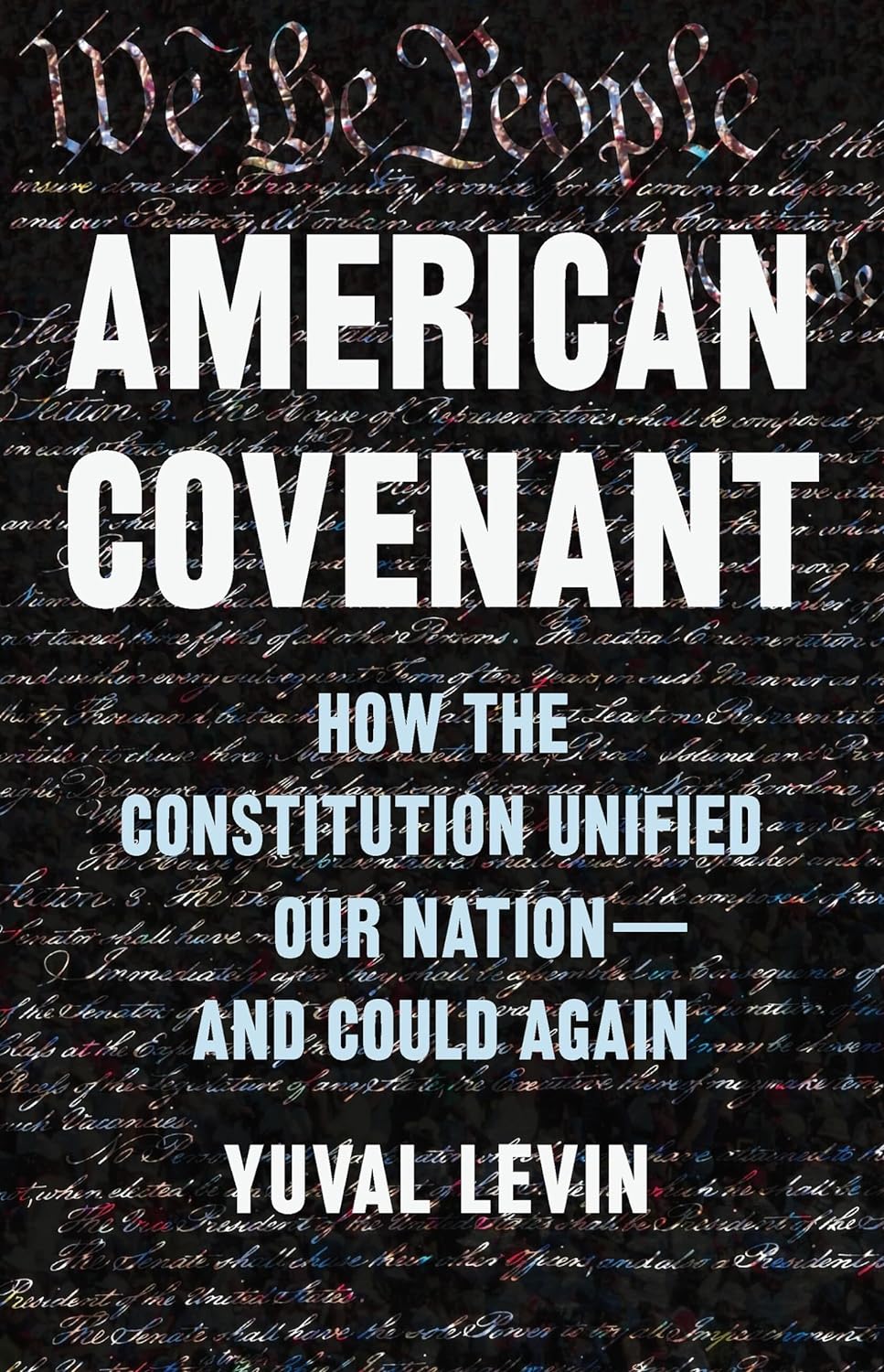
Yuval Levin is the director of Social, Cultural, and Constitutional Studies at the American Enterprise Institute, where he also holds the Beth and Ravenel Curry Chair in Public Policy. He is the founder and editor of National Affairs, a senior editor at The New Atlantis, and a contributing editor at National Review. Additionally, he writes opinion pieces for The New York Times. Levin has served on the White House domestic policy staff under President George W. Bush and worked as a congressional staffer. He earned his PhD from the University of Chicago.
American Covenant: How the Constitution Unified Our Nation―and Could Again
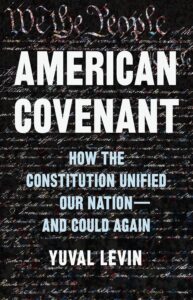
Finding common ground in today’s political landscape is challenging. With a society rife with irreconcilable political views, frustration with a government that constantly demands compromise is widespread. Many on both the right and the left have started blaming the Constitution for the ongoing discord. However, the Constitution is not the issue; it is the solution.
In American Covenant, conservative scholar Yuval Levin blends engaging history with clear analysis to recover the true genius of the Constitution, illustrating how it offers a path to healing America’s divisions. By uncovering the framers’ sophisticated understanding of political division, Levin demonstrates the Constitution’s unique ability to facilitate constructive disagreement, negotiate resolutions to disputes, and forge unity in a fragmented society. Acknowledging the malfunctions of contemporary politics, Levin also provides practical solutions for reforming the flawed aspects of the constitutional order.
Hopeful, insightful, and deeply rooted in the best of American political tradition, American Covenant celebrates the Constitution’s extraordinary power to unite a diverse society, offering reassurance that a less divided future is attainable.
The Great Debate: Edmund Burke, Thomas Paine, and the Birth of Right and Left
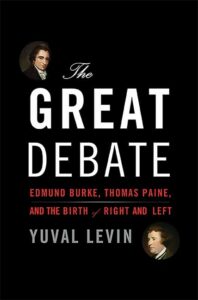
The Great Debate by Yuval Levin is a renowned exploration of Edmund Burke, Thomas Paine, and the origins of modern conservatism and liberalism.
Levin delves into the roots of America’s left/right political divide by examining the perspectives of these two influential figures during the era of the American and French revolutions. Burke and Paine clashed over fundamental moral and philosophical questions about political life and the best approach to social change: should it be radical and swift, or gradual and incremental? The ideological split they defined continues to influence our political landscape today.
For anyone looking to understand the foundations of our political system and the deep-seated divisions in Washington, The Great Debate provides a profound analysis of conservatism, progressivism, and the enduring conversation between them.
A Time to Build: From Family and Community to Congress and the Campus, How Recommitting to Our Institutions Can Revive the American Dream
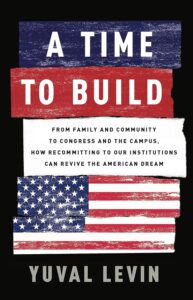
In his latest work, a leading conservative intellectual asserts that the renewal of America hinges on recommitting to our institutions.
Americans are experiencing a profound social crisis. Our politics are polarized, and culture wars rage in various arenas of public life, from campuses to social media. This pervasive alienation leads many to despair, weakening families and communities and fueling the opioid epidemic.
Both the left and right have responded with populist anger, proposing metaphors of destruction—like “cleaning house” or “draining swamps”—as solutions. However, Yuval Levin contends that this approach is based on a flawed diagnosis. The true issue is not an oppressive presence but a debilitating absence of unifying forces that counteract alienation.
Levin argues that now is the time to build and rebuild by recommitting to the institutions that shape our society. From the military to churches, from families to schools, these institutions provide the structures necessary for freedom. By taking concrete steps to restore trust in these institutions, we can renew the connections that bind Americans together.
The Fractured Republic: Renewing America’s Social Contract in the Age of Individualism
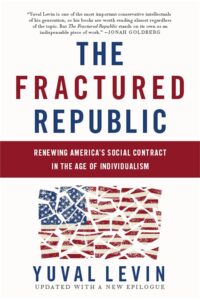
Americans today are frustrated and anxious. Our sluggish economy leaves workers insecure, while income inequality, cultural divisions, and political polarization increasingly pull us apart. Our governing institutions often seem paralyzed, and our politics has failed to address these challenges effectively.
It’s no surprise, then, that both Americans and their politicians are nostalgic for a better time. The Left looks back to the mid-twentieth century, when unions were strong, large public programs aimed to solve social problems, and movements for racial integration and gender equality were advancing. The Right reminisces about the Reagan Era, marked by deregulation, lower taxes, a resurgent cultural traditionalism, and a confident, optimistic America. Each side believes that returning to its golden age could solve America’s problems.
In The Fractured Republic, Yuval Levin argues that this politics of nostalgia is failing twenty-first-century Americans. Both parties overlook how America has transformed over the past half-century, as the large, consolidated institutions that once dominated our economy, politics, and culture have fragmented into smaller, more diverse, and personalized entities. Individualism, dynamism, and liberalization have increased at the expense of solidarity, cohesion, and social order, leaving us with more choices but less security, stability, and national unity.
Levin contends that our strengths and weaknesses stem from these changes. To address the dysfunctions of our fragmented national life, we must leverage the strengths of our decentralized, diverse, and dynamic nation. This calls for a modernizing politics that avoids both radical individualism and centralizing statism. Instead, it should revive the middle layers of society—families and communities, schools and churches, charities and associations, local governments and markets. Through these institutions, we can develop multiple, tailored solutions to the diverse challenges we face, enabling an American revival.